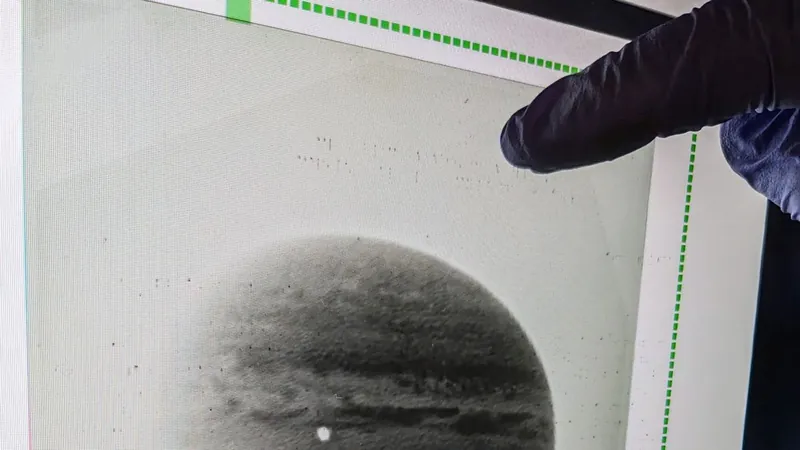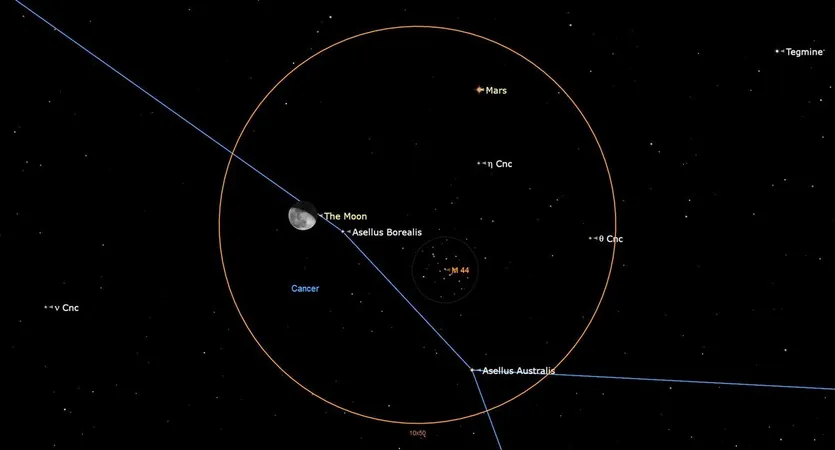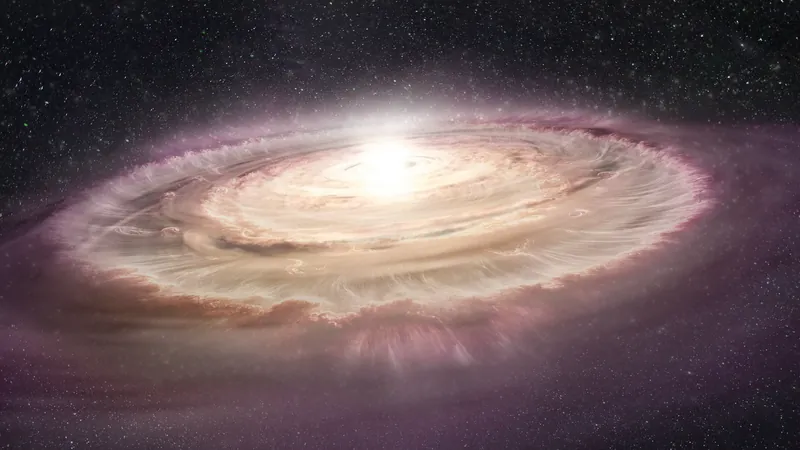
How NASA’s Mini-Team of Archivists is Unearthing Hidden Gems of Astronomical History
2024-11-24
Author: Michael
Introduction
At NASA, a dedicated team of archivists is meticulously restoring invaluable data collected from space missions spanning decades. Their work is not just about preserving history; it’s about unlocking new discoveries for contemporary researchers through the treasures of the past.
The Significance of Data Restoration
David Williams, a planetary scientist at NASA's Space Science Data Coordinated Archive (NSSDCA), expressed the urgency and significance of this archival effort. "What's surprising is how much information is either lost or in a condition that nobody can use," he told Space.com. The team is trawling through tons of materials, including photographs, film reels, microfiche, and microfilm, as they sift through neglected archives situated in various old storage rooms across the United States.
Why is this so crucial? The restored data isn't just historical; it directly influences the direction of future missions. For instance, NASA's upcoming DAVINCI (Deep Atmosphere Venus Investigation of Noble gases, Chemistry, and Imaging) mission, set to launch in the early 2030s, relies on past explorations like the Magellan Venus mission from the early 1990s. The DAVINCI team utilizes modern analysis and machine-learning techniques to generate comprehensive maps of Venus's Alpha Regio plateau, seeking to uncover volcanic activity that could redefine our understanding of the planet.
Meet the Unsung Heroes of Archiving
A day in the life of a NASA archivist involves not only focusing on past data but engaging in detective work to locate what is missing. Before the late 1980s, many researchers did not follow consistent protocols for data archiving, leading to gaps. David Williams finds thrill in the challenge: “Trying to dig up the data and figure something out is when I have the most fun here.”
With the establishment of new archival protocols, researchers aiming for funding must ensure that they submit complete datasets accompanied by thorough documentation outlining what the data measures and how it should be used. Although the situation has vastly improved, a significant amount of data from older missions remains unarchived or poorly documented, creating a persistent struggle for archivists.
Unexpected Tales of Lost Data
Some cases of lost data are simply a matter of neglect, but others tell bizarre stories. The Apollo Lunar Surface Experiment Packages (ALSEP), deployed by NASA's Apollo missions, recorded critical data from the moon. Unfortunately, during the implementation of the Marine Mammal Protection Act, magnetic tapes used to store ALSEP data, once lubricated with whale oil, were overwritten. This unfortunate oversight cost us priceless information about lunar conditions, demonstrating how easily vital data can slip through the cracks.
Iron Mountain and the Quest for Security
Fortunately, today’s data is digitized and backed up in secure facilities, including Iron Mountain, a storage solution protected against natural disasters. Williams reassures us that the archival data is safe, even in hypothetical catastrophic scenarios. However, the digital landscape presents new challenges, as technology changes often make older data inaccessible.
The NSSDCA team is currently focused on restoring data from the NASA Pioneer Venus mission that ran from 1978 to 1992 in preparation for future Venus missions like VERITAS and Europe’s EnVision. The anticipation is high: “We think a lot of that data might be useful,” said Williams, and indeed, it’s already being revisited to spark new discoveries.
Conclusion
As technology evolves, Williams and his team are dedicated to ensuring that archived data remains relevant and accessible for future generations, using sustainable formats like ASCII tables to prevent future incompatibility issues.
In our quest for knowledge about the universe, the role of the NASA archivists may often go unnoticed, but their work is fundamental in paving the way for scientific achievements that could redefine our place in the cosmos. Thanks to their diligence, the vast universe still holds numerous secrets waiting to be uncovered for years to come.









 Brasil (PT)
Brasil (PT)
 Canada (EN)
Canada (EN)
 Chile (ES)
Chile (ES)
 España (ES)
España (ES)
 France (FR)
France (FR)
 Hong Kong (EN)
Hong Kong (EN)
 Italia (IT)
Italia (IT)
 日本 (JA)
日本 (JA)
 Magyarország (HU)
Magyarország (HU)
 Norge (NO)
Norge (NO)
 Polska (PL)
Polska (PL)
 Schweiz (DE)
Schweiz (DE)
 Singapore (EN)
Singapore (EN)
 Sverige (SV)
Sverige (SV)
 Suomi (FI)
Suomi (FI)
 Türkiye (TR)
Türkiye (TR)